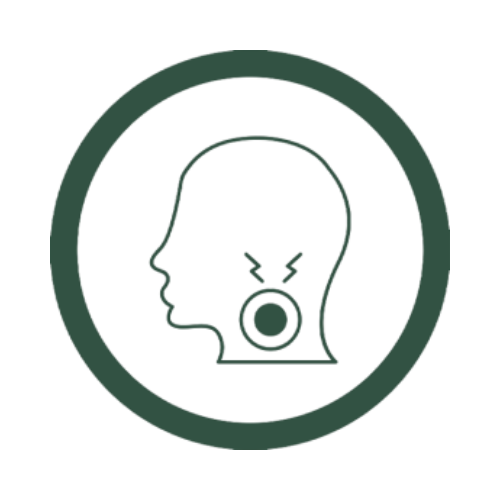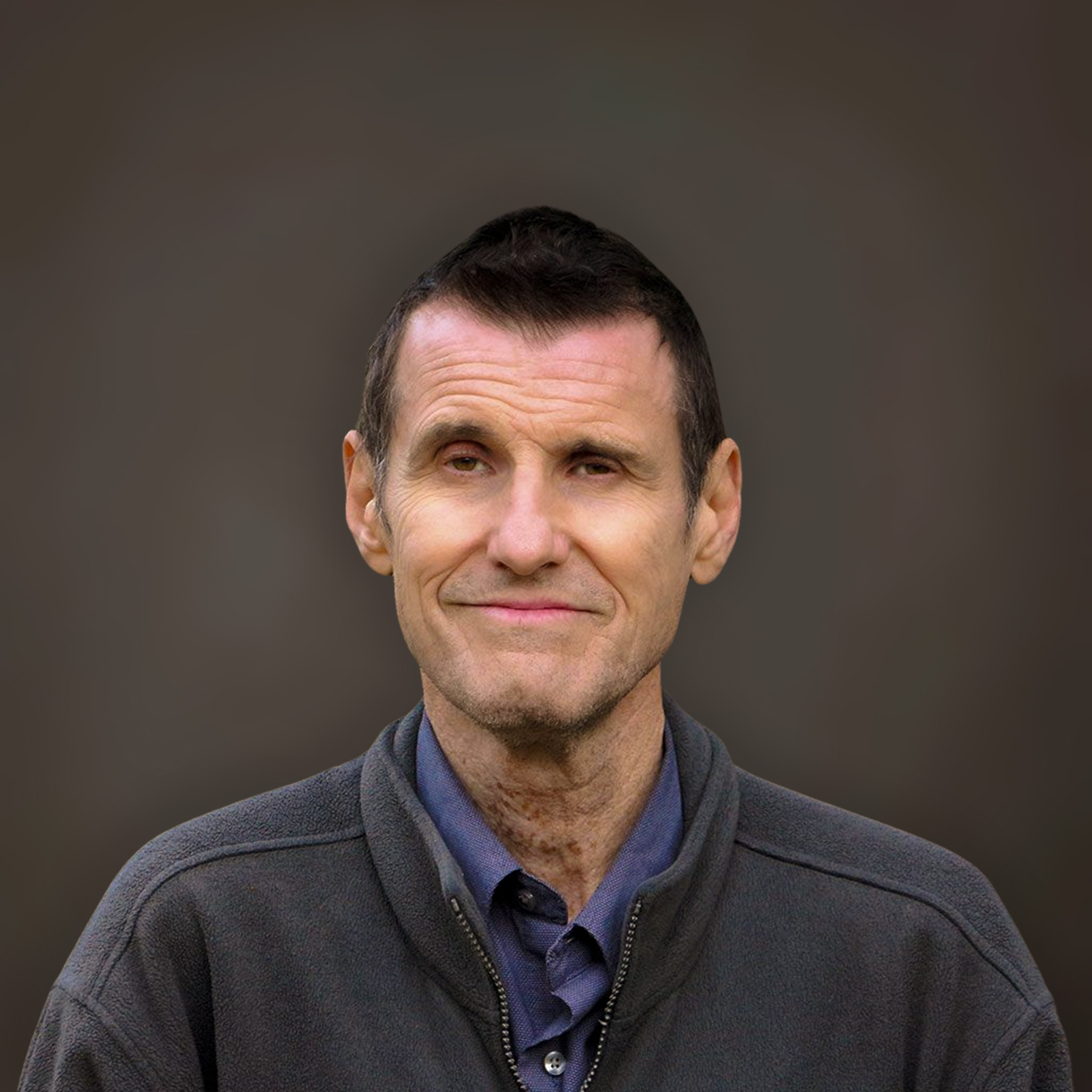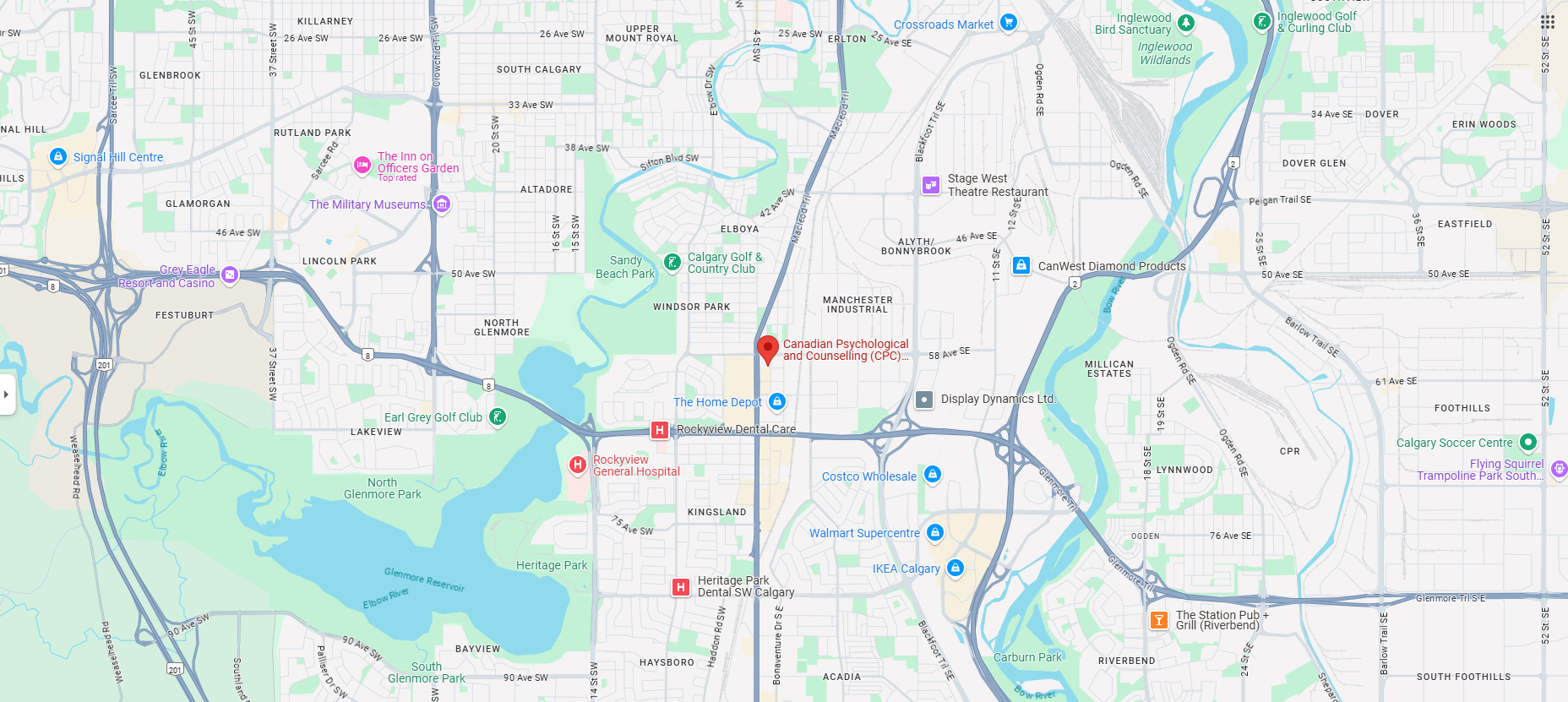Anxiety Therapy
Overcome Anxiety and Reclaim Calm in Your Life
Constant worry, panic attacks, or a mind that won’t shut off? Anxiety can be debilitating, but you don’t have to face it alone. At CPC Clinics in Calgary, we understand how anxiety steals your peace, whether it’s persistent tension at work, social anxiety in gatherings, or sudden panic on the Deerfoot Trail. Our empathetic therapists are here to help you find relief and confidence. Through evidence-based techniques and genuine support, we guide you step by step toward a calmer mind and a more balanced life
Anxiety Therapy Overview: Our anxiety treatment program in Calgary is personalized to your needs and may include:
Comprehensive Assessment: We begin by understanding your anxiety profile, triggers, symptoms (physical and emotional), and personal history. This ensures your therapist targets the right factors, from generalized anxiety to phobias or panic episodes.
Cognitive Restructuring: Learn to identify and challenge the negative thought patterns (“What if I embarrass myself?”) that fuel your anxiety. We teach you how to replace catastrophic thinking with balanced, realistic thoughts, reducing fear at its source
Coping Skills Training: You’ll practice practical strategies to manage anxiety symptoms in the moment. These include deep breathing, progressive muscle relaxation, grounding techniques, and other quick tools to calm racing heart and mind.
Exposure Therapy (Gradual Desensitization): For specific fears or panic triggers, we use gentle exposure exercises. With your consent and at your pace, you confront fears in small, controlled steps – proving to your brain that you can handle them. This approach is highly effective for phobias and social anxiety.
Mindfulness & Lifestyle: Beyond therapy sessions, we integrate stress-reduction habits into your routine. Mindfulness meditation, regular exercise, and sleep hygiene are encouraged. Our therapists may also work with you on diet and time management tweaks that can lower overall anxiety levels.
How Anxiety Therapy Helps You Find Peace
We draw from a spectrum of rigorously researched therapeutic approaches to tailor anxiety treatment to your unique needs. Each modality integrates both skill-building and experiential practice, empowering you to reduce distress, reclaim confidence, and engage fully in life.

1. Cognitive Behavioral Therapy (CBT):
What It Is :
CBT uncovers the dynamic interplay between thoughts, emotions, and behaviors. In anxiety treatment, we first learn to spot “automatic” distorted thoughts, like “If I speak up….

2. Exposure Therapy
What It Is :
As a specialized branch of CBT, exposure therapy involves deliberately facing feared sensations or situations in a controlled, supportive setting. Whether we simulate panic symptoms (interoceptive exposure) ….

3. Mindfulness-Based Stress Reduction (MBSR)
What It Is :
MBSR teaches you to anchor attention in the present moment, through guided breathing, body scans, and simple yoga stretches. By observing….

4. Acceptance and Commitment Therapy (ACT)
What It Is :
ACT shifts the focus from “getting rid of anxiety” to living a values-driven life despite it. We practice “defusion” techniques ….

5. Dialectical Behavior Therapy (DBT) Skills
What It Is :
How it works: Originally designed for intense emotional dysregulation, DBT offers practical tools that fit seamlessly into anxiety management. We draw…
Meet Our Calgary Counsellors for Anxiety :

Zarrin Tasneem
Clinical Director
MACP – Registered Provisional Psychologist

Murray Molohon
MA, BSW, BRE
– Registered Psychologist
Blogs:
Find Relief from Anxiety With CPC Clinics: A Conversation With Us
Discover how CPC Clinics helps individuals manage and overcome anxiety through compassionate, personalized care. This blog explores practical approaches and what to expect when starting the journey to relief.
Flexible & Accessible Counselling Options :
We’re committed to making couples counselling convenient, transparent, and accessible—whether you’re in Calgary or anywhere across Alberta.

Sessions start from $240 CAD per session

Insurance billing available under specific conditions

In-person sessions available in Calgary

Virtual therapy sessions offered throughout Alberta
Let’s find a time and format that works best for you.
Ans : We treat all major anxiety disorders. This includes generalized anxiety (constant worry), social anxiety, panic disorder (panic attacks), phobias (like fear of flying or driving), health anxiety, and PTSD-related anxiety. Our Calgary therapists have specialized training to tailor techniques to your specific anxiety type, because the approach for a panic attack might differ from how we handle, say, social anxiety in crowds.
Ans : Yes, absolutely. It’s never too late. Research and our clinical experience show that even long-term anxiety can improve significantly with consistent therapy. We often work with clients who’ve struggled for 10+ years , they learn new coping skills and gradually see their symptoms lessen. Patience is key; you might start noticing small changes within a few sessions (better sleep, fewer negative thoughts) and more substantial improvements as therapy continues.
Ans : Medication can be helpful for some individuals, but it’s not required. Many clients achieve great results with therapy alone, especially using CBT and mindfulness. We can work in tandem with your physician or psychiatrist if you’re considering medication , the decision is personal. If you are already on anxiety medication, therapy will complement it by teaching coping skills. And if you prefer a natural approach, we’ll respect that and focus on therapeutic techniques and lifestyle changes to manage your anxiety.
Ans : This varies person to person. Generally, short-term therapy for a specific anxiety issue might be about 8, 12 weekly sessions. More complex or long-standing anxiety may benefit from a longer course (several months). We typically start with weekly sessions; as you progress, sessions might taper to bi-weekly. You and your therapist will regularly review your progress. Some clients feel significantly better after a few months, while others choose to continue therapy for maintenance or tackling deeper roots of anxiety.
Ans : We will tailor your therapy to that specific phobia or fear using proven techniques. For example, for fear of flying, we might use a gradual exposure hierarchy: first looking at airplane photos, then visiting the Calgary airport (with support), and eventually taking a short flight when you’re ready. For public speaking anxiety, we can simulate speeches in session and teach performance anxiety hacks. Targeted therapy works very well for phobias , it systematically desensitizes your trigger so it no longer paralyzes you.
Ans : Yes. We provide anxiety therapy across the lifespan, including for children and adolescents in Calgary. Young people experience anxiety too (school stress, social pressures, test anxiety). Our team includes professionals experienced in youth mental health. Therapy for younger clients often involves creative techniques (games, art, role-play) and family involvement. If your child or teen is struggling with anxiety, we’re here to help them develop coping skills Yes. We provide anxiety therapy across the lifespan, including for children and adolescents in Calgary. Young people experience anxiety too (school stress, social pressures, test anxiety). Our team includes professionals experienced in youth mental health. Therapy for younger clients often involves creative techniques (games, art, role-play) and family involvement. If your child or teen is struggling with anxiety, we’re here to help them develop coping skills early on, in a friendly and safe environment. on, in a friendly and safe environment.
Ans : It’s normal to feel nervous! In your first session, your therapist will primarily listen. They’ll ask questions about what you’re experiencing, what triggers you’ve noticed, and how anxiety affects your daily life. You won’t be forced to do anything scary or out of your comfort zone in session one. By the end of the appointment, you’ll have a better understanding of your anxiety and a tentative plan for therapy (like, “We’ll use CBT to work on your social anxiety, and maybe try some exposure exercises around meeting new people.”). Many people leave the first session feeling hopeful , you’ll likely already have a couple of tips or resources to start with. And remember: you’re in control of your therapy journey, and we’ll move at a pace you’re comfortable with.






